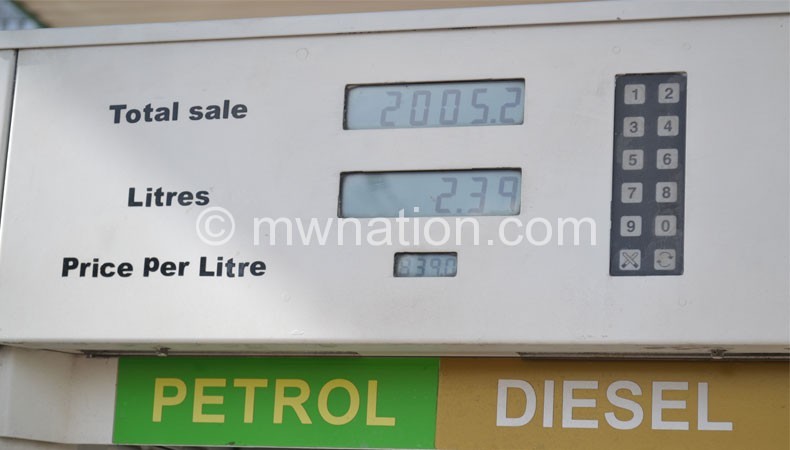Malawi fuel consumption sinks to new low

Malawi fuel—diesel and petrol—consumption has apparently dropped forcing tankers to wait for weeks to offload their cargo due to lack of storage space.
Three fuel tanker drivers in separate interviews on Tuesday confided to Business News that they are currently taking an average of two weeks to offload due to lack of space in the country’s fuel reserves.
Although one of the drivers who is based in Blantyre said that the problem is less serious when he is assigned to offload in the Southern Region because he waits at home he feared he will be in trouble if he will be assigned to drop the cargo in Lilongwe or Mzuzu. He explained that that will be more costly to him.
The truck driver noted that this is the first time that this has happened.
But Petroleum Importers Limited (PIL) chief executive officer Enwell Kadango in a telephone interview on Tuesday explained that the trucks are failing to offload because fuel consumption has slowed down blaming it on market dynamics.
“We are running short of fuel reserves because of a slowdown in demand compared to supply. The slow down might be due to the market. The drivers for the tankers will only offload once there is space in our reserves,” said Kadango.
Although Kandango blamed the market for the slow uptake of fuel in the country, he further said that they are piling up fuel for the forthcoming elections.
But when asked the margin by which the fuel imports have been increased to create a buffer for the elections Kadango said he needed time to check.
But available data indicates that Malawi’s fuel imports have plunged.
According to the National Statistical Office (NSO) Malawi imported 17.7 million litres of diesel in June 2013 20 percent less compared to 21.9 million litres imported in June 2012 while petrol imports dropped by about 30 percent to 9.1 million litres compared to 13.3 million litres in the same period in 2012.
Experts and other stakeholders have blamed the drop to the rising fuel prices due to the Automatic Pricing Mechanism (APM) that has forced motorists to cut their demand.
But Minister of Energy Ibrahim Matola commenting on the fuel industry recently argued that the APM was good because it has improved fuel availability.
Since the liberalisation of the kwacha in 2012, the local unit has generally lost value against main trading currencies including the dollar.
Recently in February this year the Malawi Energy Regulatory Authority (Mera) raised fuel prices to K853.40 per liter for diesel and K839 per liter for petrol, blaming it on the combined effect of international oil market and the depreciation of the kwacha.





